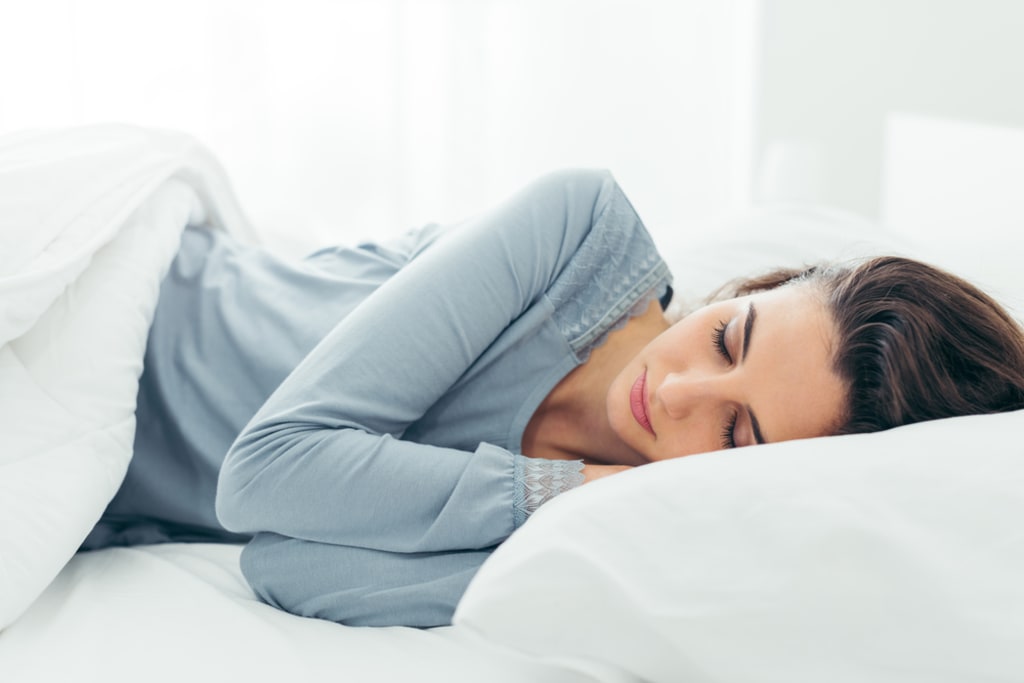7 Brilliant Tips to Improve Your Sleep
Want to master the art of sleeping? Start by conditioning your body and your brain with these simple tips and habits.

1. Transform Your Bedroom into a Sleep-Inducing Environment.
A calm, dim, and cool condition can help advance sound sleep. For what reason do you think bats assemble in caverns for their daytime rest? To accomplish such a situation, bring down the volume of outside clamor with earplugs, or a "repetitive sound." Utilize substantial drapes, power outage shades, or an eye veil to square light, an amazing sign that advises the mind that it's a great opportunity to wake up.
Keep the temperature serenely cool and somewhere in the range of 60 and 75 and keep the room all around ventilated. What's more, ensure your room is furnished with an agreeable sleeping cushion and pads (Keep in mind that most sleeping pads wear out following ten years).
Likewise, if a pet consistently wakes you amid the night, you might need to consider keeping it out of your room. It might confine your room exercises to rest and sex as it were. Keeping PCs, TVs, and work materials out of the room will fortify the psychological relationship between your room and rest.
2. Get in the Tub.
Prior to bed, draw up a pleasant hot shower for splashing. The warm water will mitigate tense muscles, and increase blood flow. Add some Epsom salt to help detoxify your body, and diffuse a touch of lavender basic oil to help quiet you from the worries of the day.
3. Build up a Soothing Pre-Sleep Routine.
Light perusing before bed is a decent method to set yourself up for rest. Facilitate the change from wake time to rest time with a time of loosening up exercises an hour or so before bed. Wash up (the ascent, at that point fall in body temperature advances sluggishness), read a book, sit in front of the TV, or practice unwinding works out. Evade unpleasant, animating exercises, and doing work, talking about intense subject matters. Physically and mentally distressing exercises can make the body emit the pressure hormone cortisol, which is related to expanding readiness. In the event that you will, in general, take your issues to bed, have a go at thinking of them down and after that, set them aside.
4. Rest When You're Truly Tired.
Attempting to rest just prompts dissatisfaction. In case you're not snoozing following 20 minutes, get up, go to another room, and accomplish something unwinding, such as perusing, or tuning to music until you are sufficiently drained to rest.
5. Try not to Be a Night time Clock-Watcher.
Gazing at a clock in your room, either when you are attempting to nod off, or when you wake amidst the night, can really build pressure, making it harder to nod off. Dismiss your clock's face from you. What's more, in the event that you wake up amidst the night, and can't return to rest in around 20 minutes, get up and participate in a calm, soothing movement, for example, perusing, or tuning to music. Also, keep the lights dimmed; splendid light can invigorate your inner clock. At the point when your eyelids are hanging, and you are prepared to rest, come back to bed.
6. Keep off Electronics
We live in a world with hardware. They have made a few parts of our lives simpler. Yet, rest isn't one of them. Hardware radiate blue light. Blue light has a short wavelength, and along these lines, higher vitality. Harvard analysts have additionally discovered that blue light declines melatonin discharge more than some other sorts of light, which thusly makes it harder to nod off.
In any case, gadgets are additionally addictive. At one of my ongoing chiropractic workshops, Dr. Joseph Mercola expressed that "cellphones are the cigarettes of the 21st century." Check out his post with some unnerving insights regarding wireless use.
Numerous individuals hit the sack with a cellphone in their grasp, which causes a cycle of lack of sleep. I referenced in the past passage that light from a cellphone diminishes melatonin. This makes it harder to rest. On the off chance that we can't rest, at that point, what do we do? We take a gander at the cellphone considerably more. And afterward, the cycle just deteriorates over the long run.
So lock those screens before bed. Begin step by step, restricting screen usage 30 minutes before bed. At that point, following seven days, limit usage an hour prior to bed, etc.
7. Exercise Early
Exercise advances relaxing rest in the event that it is completed a few hours before you hit the hay. Exercise can enable you to nod off quicker and rest all the more soundly, as long as it's done at the ideal time. Exercise invigorates the body to discharge the pressure hormone cortisol, which actuates the cautioning component in the mind. This is fine, except if you're attempting to nod off. Endeavor to get done with exercising no less than three hours before bed, or work out prior in the day.
These tips will be simpler to incorporate into your day by day, and daily everyday practices than others. Be that as it may, on the off chance that you stay with them, your odds of accomplishing peaceful rest will improve.
About the Creator
Emylee Modestino
Emylee is a wellness lifestyle writer. She loves sharing her thoughts and personal experiences related to natural remedies, yoga, and fitness through her writing.






Comments
There are no comments for this story
Be the first to respond and start the conversation.